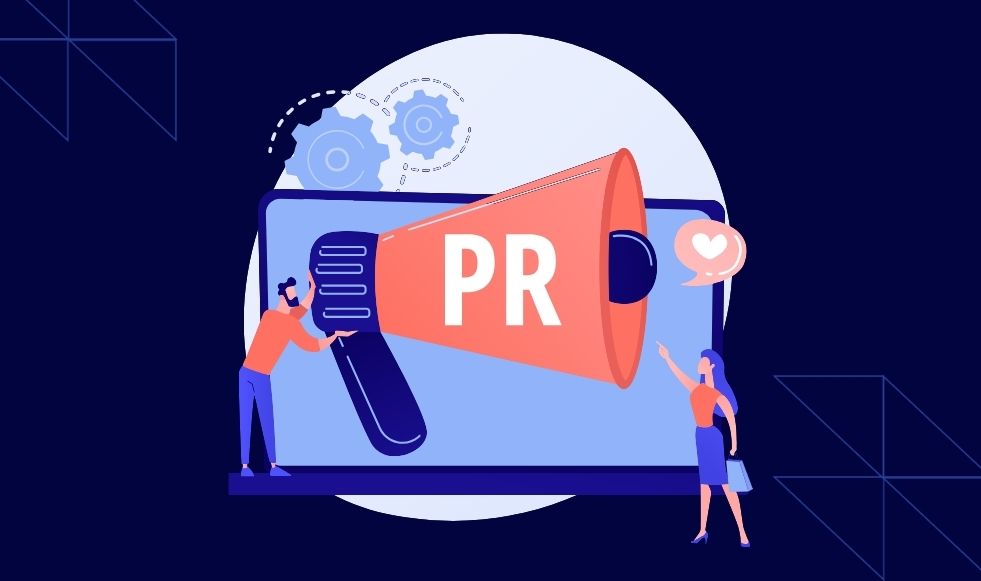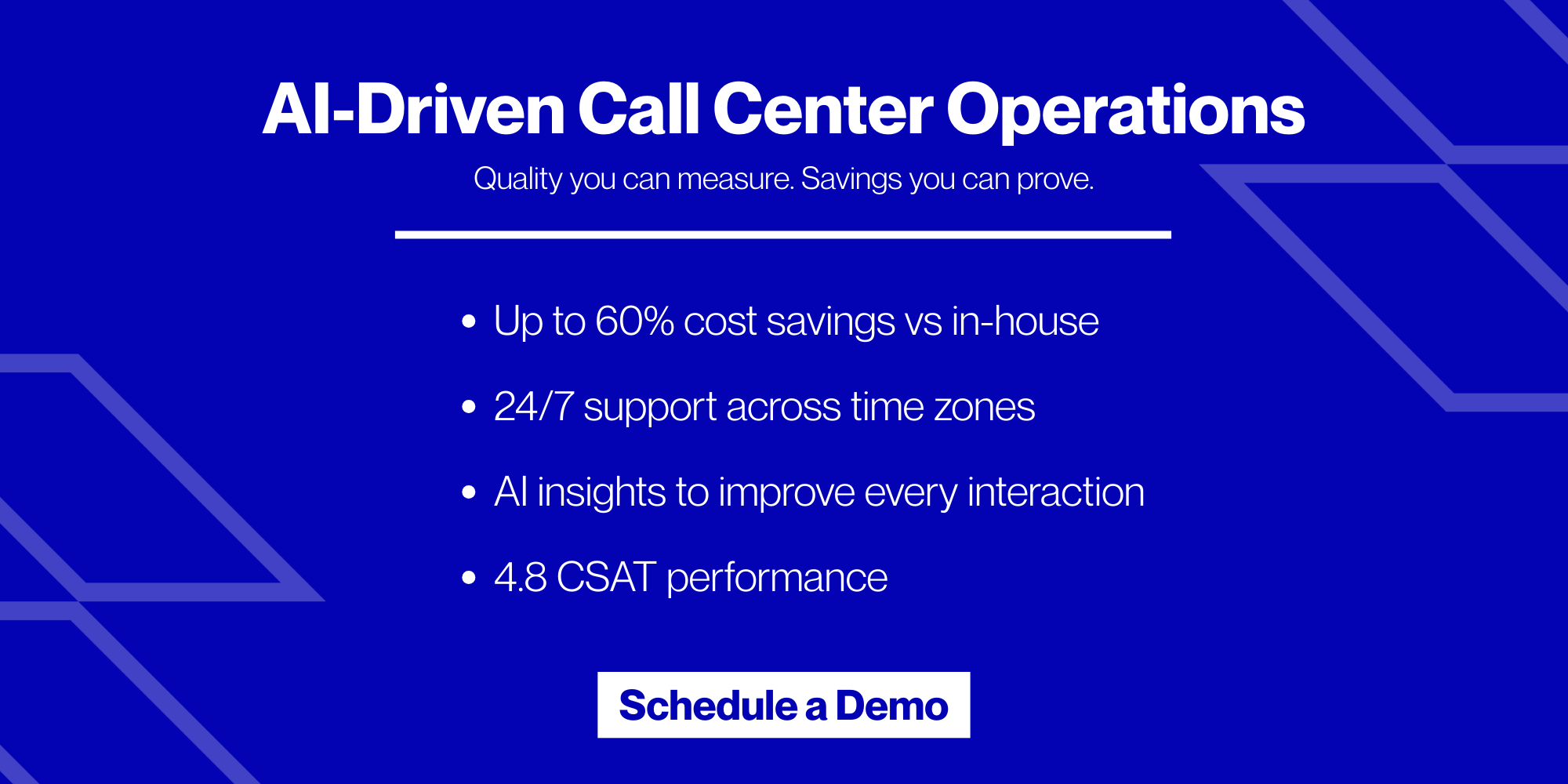By outsourcing communications, you hand over your company’s messaging and interaction tasks to external specialists. These providers can handle customer, public, or internal communication on your behalf. Such a delegation removes the need to run a full in-house team.
Communication never stops! Be it on social media or customer support channels, your business is always receiving something. Studies show that more than 3 million emails are sent and received each day. How much is your business getting? The numbers may be astronomical!
But if your in-house team is answering every email, social media comment, and support ticket themselves, you are simply draining both your money and core focus.
Okay, any solution? Yes, ever thought of outsourcing communications? In 2024, this market stood at $22.5 billion and is expected to hit $40 billion by 2033. Several D2C companies and consumer brands (with 5+ employees) are now delegating routine and rule-based communication.
Want to learn why? In this article, you will first learn what outsourcing communication means and its major benefits. Next, you will learn what you should delegate versus keep in-house in 2025.
What is Outsourcing Communication?

Outsourcing communication refers to the process of delegating some or all of your business communication tasks to an outside company. Instead of managing everything in-house, you hire specialists to handle communication needs. For example:
- A startup can outsource customer support to a BPO company.
- A global company may hire a PR (public relations) agency to manage its public image.
- A D2C company operating in the US, UK, and Australia hires a multilingual team abroad to serve customers in different regions.
Usually, communications outsourcing services cover the following:
| Common Communications Outsourcing Services | Activities Performed |
| Customer Service | Answering customer calls, emails, or chats. |
| Technical Support | Resolving product or service issues of customers. |
| Public relations | Managing your brand’s image in the market. |
| Internal messaging | Sharing updates and information within your team. |
| Social Media Management | Handling customer interactions and brand presence online. |
| Crisis Communication | Managing communication during difficult or urgent situations. |
Nowadays, several D2C companies and consumer brands earning $5M+ revenue are outsourcing communications. It allows them to focus more on running their business. At the same time, trained experts manage their customer interactions, brand messaging, and information flow.
6 Major Benefits of Outsourcing Communications in 2025!

Did you know? In 2025, companies are spending an average of $115.46 per employee on business process outsourcing. India and the Philippines remain the top providers for communications outsourcing services, followed by Balkan and Eastern European markets.
But how does it help? Check out these six major benefits of outsourcing communications in 2025:
1. Cut Your Overhead Costs
When you build or run an in-house communication team, you must spend on:
- Regular salaries
- Employee benefits, such as health insurance, severance, etc.
- Training programs
- Purchase cost of equipment
- Subscription fee for the latest software
By outsourcing communication, you can remove these fixed costs as you only pay for the service you need. All the rest of the expenses are taken care of by the hired agency. This leads to significant cost savings.
For example, by outsourcing to Atidiv, a leading customer experience specialist, you can save up to 60% as compared to running in-house teams.
2. Use The Services of Experienced Professionals
Outsourced teams are made up of specialists in:
- Customer support
- PR
- Technical help
- Omnichannel messaging
They bring years of experience and know how to use the right tone, language, and channel for each situation. This gives your business access to professional expertise without paying full-time salaries + benefits.
3. Expand or Shrink on Demand
Communication needs are not the same all year! Yes, you might need more communications professionals during:
- Busy seasons (boom periods)
- New product launches
- Entering novel business markets
On the other hand, slower periods (lean phase) require fewer communications staff. Now, when you outsource communications, you can easily adjust your communication team as per your business requirements. This saves you from recruiting, training, or letting staff go when business slows.
4. Let Your Customers Reach You From Everywhere and Anytime!
Today’s customers expect help, day or night, often in their own language. Leading communications outsourcing services providers, like Atidiv, usually operate 24/7 and offer multilingual teams.
This feature is highly beneficial for D2C/ consumer brands operating in multiple regions, such as the US, UK, and Australia. By outsourcing communication, you can be assured that your customers always get answers, no matter where they are in the world or when they contact you.
5. Free Up Your Staff’s Time
Is your team drowning in routine communication tasks? If it’s a yes, how will they make new business strategies and try to:
- Increase revenue/ sales
- Improve existing product quality
- Launch new products
Don’t let your business lag! By outsourcing communication, you can free up the critical time of your in-house staff. This can now be invested in work that really grows the business (rather than day-to-day messaging).
6. Benefit from The Latest Technologies and Modern Tools!
Top communications outsourcing services providers invest in advanced tools such as:
- AI chatbots
- Customer relationship systems
- Analytics platforms
Now, through delegation, you get to enjoy these technologies without purchasing or maintaining them. Studies show that such automation tools are reducing operational costs by up to 30%. They are even improving accuracy + increasing data security for outsourced communications.
Want to Outsource Communications? What You Should (and Shouldn’t) Delegate in 2025!
While outsourcing communications, your goal should be to keep control of brand and reputation risk. Ideally, you can outsource repeatable work that follows rules, scripts, and data. For your reference, below is a list of tasks you should and shouldn’t delegate in 2025:
A) You Can Outsource These Tasks
| Area | Scope of Delegation | What You Should Provide |
| Tier-1 Customer Support |
|
|
| Appointment and sales routing |
|
|
| Social listening and responses |
|
|
| Community moderation |
|
|
| Outbound notifications |
|
|
| Multilingual support |
|
|
| Knowledge base upkeep |
|
|
| PR production |
|
|
B) You May Not Outsource These Tasks
| Area | Why keep in-house |
| Brand strategy and voice | Sets identity and long-term positioning |
| Crisis statements | High risk and can have a legal impact |
| Pricing, terms, and policy changes | Direct effect on revenue and trust |
| Key account communications | Requires context and past customer history (including personal details) |
| Refund exceptions | Needs judgment and authority |
| Security/breach notices | Your business credibility is at stake. Also, it could lead to financial liabilities. |
| Sensitive HR communications | These are mostly related to layoffs, discipline, and culture topics |
Don’t Run In-House Teams! Outsource to Atidiv and Save Up to 60% in 2025
So, till now, you must have understood that “outsourcing communication” means hiring outside experts to manage parts of your company’s messaging, such as:
- Customer support
- Public Relations
- Social media support
- Online Reputation Management (ORM)
Such a delegation saves costs, + you can access skilled professionals without full-time hirings. Also, you free up much of your staff’s time as they are no longer lost in day-to-day interactions.
But you shouldn’t hand over everything blindly! Keep control of sensitive areas like brand strategy, crisis messages, and financial disclosures. Ideally, you may outsource only rule-based tasks such as:
- Customer support
- Multilingual help
- Content moderation
- Social listening, and more
So, are you looking for a trusted outsourcing partner? Atidiv is a leading digital customer experience solutions provider with 15+ years of expertise and 70+ clients. We operate in 20+ industries and offer several services such as omnichannel messaging solutions, inbound and outbound call center services, and more.
Want to learn how we can help you? Book a free consultation today. Let’s talk!
Outsource Communications FAQs
1. How do I know which communication tasks to outsource?
You can always outsource communications tasks that are:
- Rule-based
- Repetitive
- Can be handled with scripts or guidelines
Some common examples are customer support, multilingual help, community moderation, or social listening. On the other hand, keep sensitive areas like brand strategy, crisis statements, and financial disclosures in-house.
2. Will outsourcing communication hurt my customer relationships?
To gain the most from outsourcing, you can set clear rules and keep ownership of sensitive messaging. Let your hired agency handle:
- Routine queries
- Reviews
- Notifications
Whereas, make your in-house team handle your key accounts, strategy, and personal touches. The benefit of this mixed approach? Your customers still get timely support, but important messages stay authentic and are controlled in-house.
3. Is outsourcing communication affordable for small businesses?
Yes! Instead of spending on salaries, training, and infrastructure, you pay only for the services you need. This cuts fixed costs and removes long-term financial commitments. Also, you benefit from:
- The latest technologies and software (no need to make any heavy upfront investment)
- The experience of skilled professionals
- Flexibility of increasing and decreasing the headcount of the third-party communications team as per your business needs
4. What should I look for in a communications outsourcing services provider in 2025?
In 2025, the best partners combine skilled human support with advanced tools like:
- AI chatbots
- Multilingual platforms
- Research and analytics
As a tip, you should look for an agency operating in your industry. It should also have strong security standards and rich experience. Always remember that the right partner should act as an extension of your team (not just a vendor).
5. How do I maintain control if someone else is managing my communication?
Firstly, you should set clear guidelines, escalation rules, and approval steps. Then, you decide:
- What must be signed off by you (like crisis or policy changes)
and
- What can be fully handled by the vendor
You can also ask your outsourcing partner to send monthly reports and allow weekly check-ins. Through these efforts, you can avoid day-to-day management and remain 100% in control.

